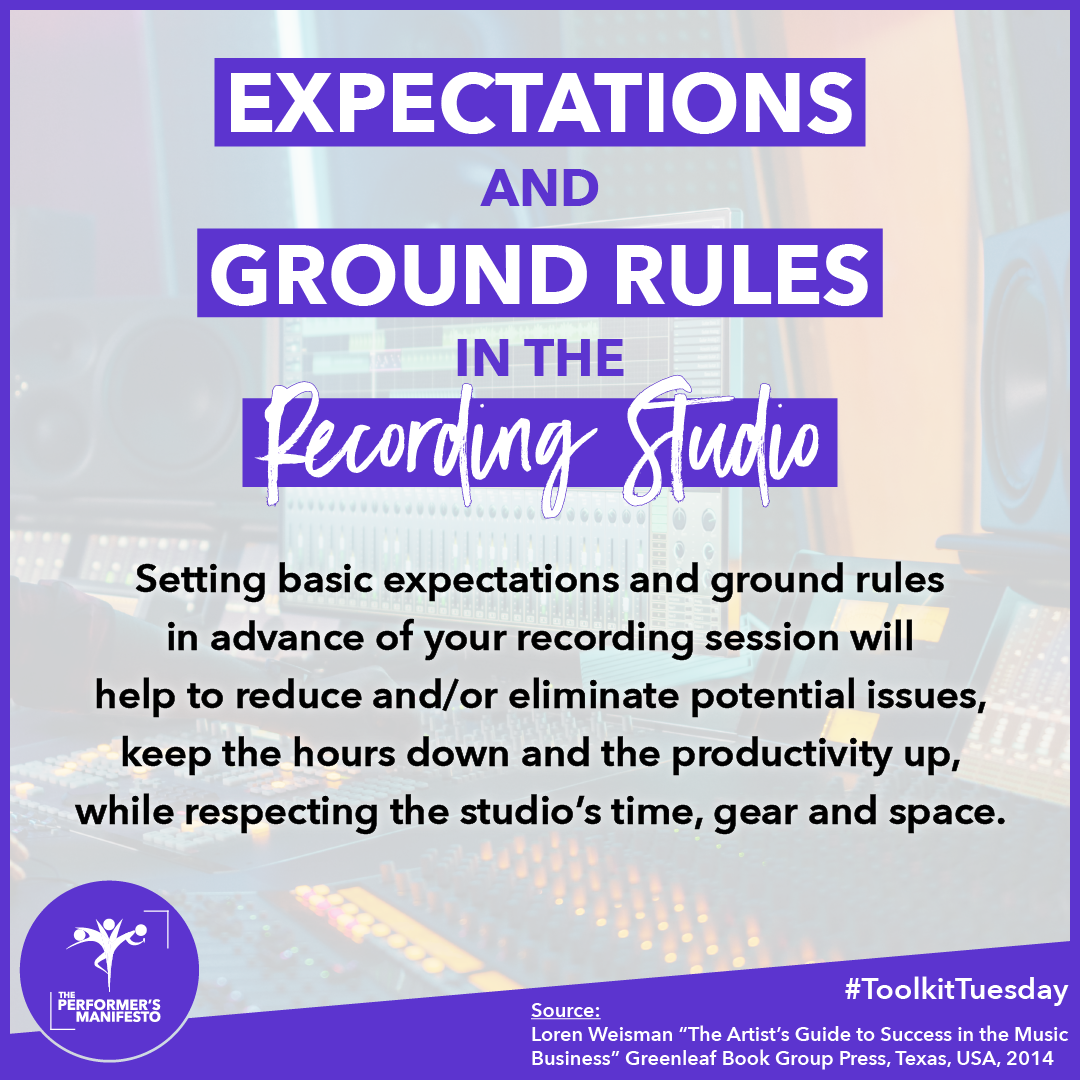Welcome to another #ToolkitTuesday! This week, we’re diving into some vital expectations and ground rules to follow in the recording studio. Whether you’re a seasoned professional or a newcomer to the recording process, these guidelines will help you make the most of your studio time, reduce stress, and ensure a productive session.
Setting the Stage: Why Ground Rules Matter
Recording sessions can easily spiral out of control, leading to budget overruns, time crunches, and even internal conflicts. To avoid these pitfalls, setting clear expectations and ground rules before your session is crucial. Loren Weisman, in his book “The Artist’s Guide to Success in the Music Business,” emphasizes the importance of preparation to maintain a positive and efficient studio environment.
Key Guidelines for a Successful Session
- Arrive at Your Set Call Time Make sure you allow sufficient time to get to the studio and start loading in at the call time. Punctuality is key to ensuring a smooth start to your session.
- Turn Cell Phones Off Not on vibrate, but completely off. You’re there to work, and interruptions or unwanted sounds can ruin a perfect take.
- Be Aware of Talkback If the engineer or producer is speaking to one band member over the talkback, everyone else should remain quiet and avoid playing their instruments.
- Have Your Gear Ready and in Top Condition Make sure your instruments are ready to play upon arrival. This includes changing strings, drumheads, and having extra supplies like batteries and strings on hand.
- Be Physically and Mentally Prepared Come to the session in the right frame of mind, ready to work. Avoid being hungover or exhausted to ensure you can perform at your best.
- When Concentrating on a Sound, Don’t Add Others If the engineer is adjusting a mic around a kick drum or amp, don’t play other instruments. This helps them focus and get the best sound possible.
- Bring in Samples If you’re aiming for a specific sound, bring in examples or tracks to show the engineer. This helps in communicating your vision clearly.
- Start with Drums Engineers often start with the drums. Make sure your drum kit is ready, with backup supplies like a spare snare head and duct tape.
- Don’t Bring Guests Keeping the control room and environment focused on work, not impressing guests, is crucial for maintaining a productive session.
- Respect the Engineer and the Studio Watch for cords and other equipment and avoid stepping on them. Share your ideas for the mix after the take has stopped.
- Shhhhhhh! Stay quiet for a full count of eight after finishing a take to ensure no unwanted noise is captured.
- Be Open to Change Sometimes stage settings don’t work in the studio. Be flexible and open to experimentation to achieve the best sound.
- Never Start with a Ballad For energy levels and sound dynamics, start with an up-tempo or mid-tempo song to set the right tone.
- Watch Where You Are Always check if recording, tracking, or mixing is in progress before entering a room to avoid interruptions.
- Lose the Extra Percussion Remove any noisy jewellery or instrument rattles that could affect a take.
- Stink with Consideration The studio is a small, enclosed environment. Avoid wearing heavy colognes or perfumes on session days to keep the atmosphere pleasant for everyone.
Remember, the more prepared you are, the more you can focus on the creative process. Following these ground rules will help you maintain a positive vibe, deliver the best results, and enjoy your time in the studio.
“If you can keep the vibe in the best place, you can deliver the best results in the most comfortable atmosphere while having the best time.” – Loren Weisman
Happy recording!


